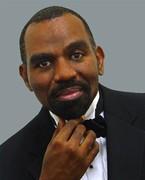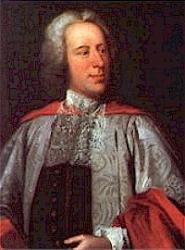Planning worship?
Check out our sister site, ZeteoSearch.org,
for 20+ additional resources related to your search.
- |
User Links
Person Results
Henry Thomas Smart

1813 - 1879 Person Name: Henry Smart, 1813-1879 Composer of "[O ruler of the universe, Lord God]" in The Hymnal 1982 Henry Smart (b. Marylebone, London, England, 1813; d. Hampstead, London, 1879), a capable composer of church music who wrote some very fine hymn tunes (REGENT SQUARE, 354, is the best-known).
Smart gave up a career in the legal profession for one in music. Although largely self taught, he became proficient in organ playing and composition, and he was a music teacher and critic. Organist in a number of London churches, including St. Luke's, Old Street (1844-1864), and St. Pancras (1864-1869), Smart was famous for his extemporizations and for his accompaniment of congregational singing. He became completely blind at the age of fifty-two, but his remarkable memory enabled him to continue playing the organ. Fascinated by organs as a youth, Smart designed organs for important places such as St. Andrew Hall in Glasgow and the Town Hall in Leeds. He composed an opera, oratorios, part-songs, some instrumental music, and many hymn tunes, as well as a large number of works for organ and choir. He edited the Choralebook (1858), the English Presbyterian Psalms and Hymns for Divine Worship (1867), and the Scottish Presbyterian Hymnal (1875). Some of his hymn tunes were first published in Hymns Ancient and Modern (1861).
Bert Polman
Henry Thomas Smart
John Goss

1800 - 1880 Person Name: John Goss, 1800-1880 Composer of "[O ruler of the universe, Lord God]" in The Hymnal 1982 John Goss (b. Fareham, Hampshire, England, 1800; d. London, England, 1880). As a boy Goss was a chorister at the Chapel Royal and later sang in the opera chorus of the Covent Garden Theater. He was a professor of music at the Royal Academy of Music (1827-1874) and organist of St. Paul Cathedral, London (1838-1872); in both positions he exerted significant influence on the reform of British cathedral music. Goss published Parochial Psalmody (1826) and Chants, Ancient and Modern (1841); he edited William Mercer's Church Psalter and Hymn Book (1854). With James Turle he published a two-volume collection of anthems and Anglican service music (1854).
Bert Polman
John Goss
Carl Haywood

b. 1949 Person Name: Carl Haywood (b. 1949) Author, refrain of "The Song of the Redeemed (Magna et mirabilia): Canticle 19" in Wonder, Love, and Praise
Carl Haywood
Bruce E. Ford
b. 1947 Person Name: Bruce E. Ford, b. 1947 Adapter of "[O ruler of the universe, Lord God]" in The Hymnal 1982
Bruce E. Ford
Maurice Greene

1696 - 1755 Person Name: Maurice Greene, 1695-1755 Composer of "[O ruler of the universe, Lord God]" in The Hymnal 1982 Born: August 12, 1696, London, England.
Died: December 1, 1755, England.
Buried: Originally at St. Olave’s, Old Jewry. On the demolition of St. Olave’s, his remains were moved to St. Paul’s and placed in Boyce’s grave, May 18, 1888.
Maurice Greene (12 August 1696 – 1 December 1755) was an English composer and organist.
Born in London, the son of a clergyman, Greene became a choirboy at St Paul's Cathedral under Jeremiah Clarke and Charles King. He studied the organ under Richard Brind, and after Brind died, Greene became organist at St Paul's.
With the death of William Croft in 1727, Greene became organist at the Chapel Royal, and in 1730 he became Professor of Music at Cambridge University. In 1735 he was appointed Master of the King's Musick. At his death, Greene was working on the compilation Cathedral Music, which his student and successor as Master of the King's Musick, William Boyce, was to complete. Many items from that collection are still used in Anglican services today.
He wrote very competent music in the Georgian style, particularly long Verse Anthems. His acknowledged masterpiece, Lord, let me know mine end, is a representative example. Greene sets a text full of pathos using a polyphonic texture over a continuous instrumental walking bass, with a particularly effective treble duet in the middle of the work. Both this section and the end of the anthem contain superb examples of the Neapolitan sixth chord.
--en.wikipedia.org/wiki/
Maurice Greene
Thomas Purcell
1582 - 1682 Person Name: Thomas Purcell, d. 1682? Composer of "[O ruler of the universe, Lord God]" in The Hymnal 1982
Thomas Purcell


 My Starred Hymns
My Starred Hymns


